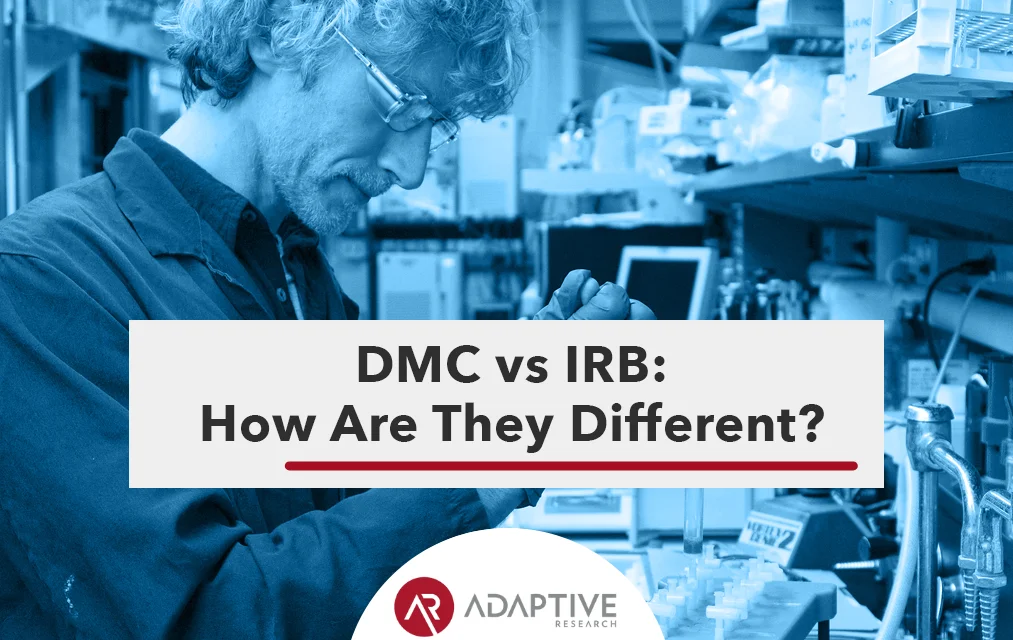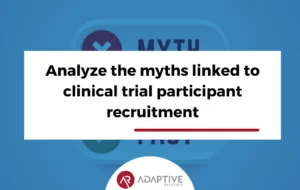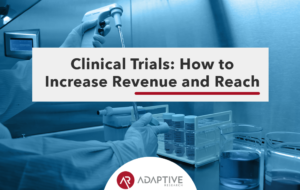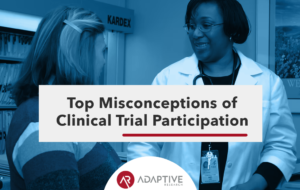There’s plenty of work that goes into facilitating clinical trials. From patient consent to oversight of data collection, clinical trials take a diverse set of skills and disciplines. In addition to understanding these areas, an important aspect of a clinical trial’s organization is knowing how it is organized and how it impacts the services they offer.
Teamwork is a crucial part of creating high-quality data in a clinical trial. This requires effective communication between different teams within the company. But do you know the differences between DMCs and IRBs?
The following article provides an overview of these groups, their role in clinical trials, and how they work together to ensure quality data.
There’s plenty of work that goes into facilitating clinical trials. From patient consent to oversight of data collection, clinical trials take a diverse set of skills and disciplines. In addition to understanding these areas, an important aspect of a clinical trial’s organization is knowing how it is organized and how it impacts the services they offer.
Teamwork is a crucial part of creating high-quality data in a clinical trial. This requires effective communication between different teams within the company. But do you know the differences between DMCs and IRBs?
The following article provides an overview of these groups, their role in clinical trials, and how they work together to ensure quality data.
What Are Data Monitoring Committees (DMCs)?
A DMC is a group that has been officially approved by either the FDA or its local equivalent to monitoring data produced by a clinical trial. DMCs are cross-institute groups that are composed of patient representatives, statisticians or methodologies, clinical experts, and sponsors to ensure all data was collected correctly.
Typically comprised of 5-6 members, DMCs work independently from the study team by verifying the scientific validity of the data being gathered. Furthermore, they have an obligation to either disregard bad data points or stop a trial entirely for problems with execution. The main goal is to improve the quality of subsequent trials, so they do not experience the same problems. The DMC also helps to decide whether or not a trial has “clinical meaningfulness.”
Sponsors are responsible for monitoring and verifying that all of the clinical trial sites are operating with good data collection by creating the DMC. This is usually an on-site visit to each site by a representative from the sponsor company.
In trials with blind or placebo control, the DMC has the authority to stop a trial if it determines that one of the groups is suffering without receiving benefits. This would indicate that there were side effects or no improvements with the placebo.
When Are DMCs Required?
The FDA can require that a DMC monitor certain trials under their guidelines. Typically, a DMC will be required if a trial has any of the following features:
- Trials on high-profile topics with a focus on community concern that will seek regulatory approval
- Trials with significant safety concerns, unknown risks, or that involve vulnerable populations
- Trials that require independent monitoring due to double-blind treatment assignment, long-term follow, or if the sponsor does not have their own set of standard operating procedures.
DMCs are less common in the following cases:
- if the trial is of short duration
- trials with minimal risk
- trials aiming to demonstrate biological principles (e.g., early phase clinical trials);
- trials on administrative issues.
DMCs are commonly created in a later phase of a trial, usually Phase III, to monitor the results of a trial and help determine the safety of the drug being studied. These DMCs are more focused on information from researchers rather than direct benefits for participants. In many cases, though, the data from these committees are used by an Institutional Review Board (IRB) to get more details on risk vs. benefit for research participants.
What Are Institutional Review Boards (IRBs)?
Institutional Review Boards (IRBs) are usually committees designated to protecting the safety of human participants involved in research. The Human Research Protection Program defines an IRB as an organized group of people responsible for reviewing proposals submitted by members of their institution to do research involving humans as participants. IRBs typically include scientists, physicians, ethicists, and community representatives who make recommendations on whether a research study should be approved for initiation, continued, or discontinued. IRBs can also determine conditions under which the research may go on and how participants are to be protected.
IRBs are needed whenever an ethical issue might arise during the trial process. These usually consist of potential benefit vs. risk issues or informed consent issues that could come up between the researchers and participants. However, if any of these issues do come up, an IRB is required to oversee them to ensure that participants are protected.
The IRB typically works with the DMC to protect the safety of research participants by viewing a monitoring plan that the investigators have proposed. The DMC can provide valuable input to the IRB concerning the research protocol, particularly if rare or sensitive procedures are involved. If there are any safety concerns, it is important for the members of both committees to communicate with one another so that the issues can be resolved before any problems arise.
Conclusion
While IRBs have an important role in approval of clinical trials, IRBs do not have the responsibility or authority to monitor ongoing research. However, when a project is in its early stages, it is appropriate for the DMC members to meet with the IRB and provide them with information about what they have seen. For example, the DMC can inform the IRB of any safety issues they think should be resolved with unblinded study data before the study continues. The DMC and the IRB also need to work together to ensure that any protocol deviations they notice are addressed in a timely fashion with proper approvals.
There is no conflict between committees; rather, each has a different but related purpose and expertise. It is important that the DMC and the IRB communicate with one another as needed throughout the life of a clinical trial to ensure that all risks are being monitored. Both committees play important, well-defined roles in the clinical trial process that are equally valuable to protecting study participants.
While much of the DMC’s responsibility is focused on reporting results, this committee also has a critical role in working with investigators to identify any issues or risks early on and helping ensure their safe handling throughout the study. The IRB has responsibility for understanding the scientific and ethical issues that may be involved in a clinical trial as well as protecting patients from any undue or unnecessary risks. In order to ensure that protection, both committees have important roles in creating, reviewing, approving, and overseeing protocols before they are implemented.
While many community physicians wish to engage in clinical research, the administrative burden can prove to be too cumbersome. Fortunately, Adaptive Research streamlines the clinical trial process by assisting with standardized operations. Learn more about Adaptive Research here.






